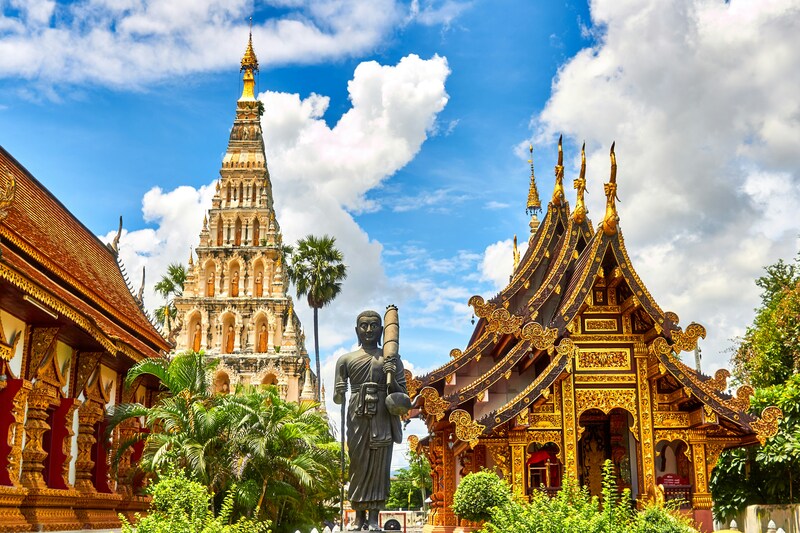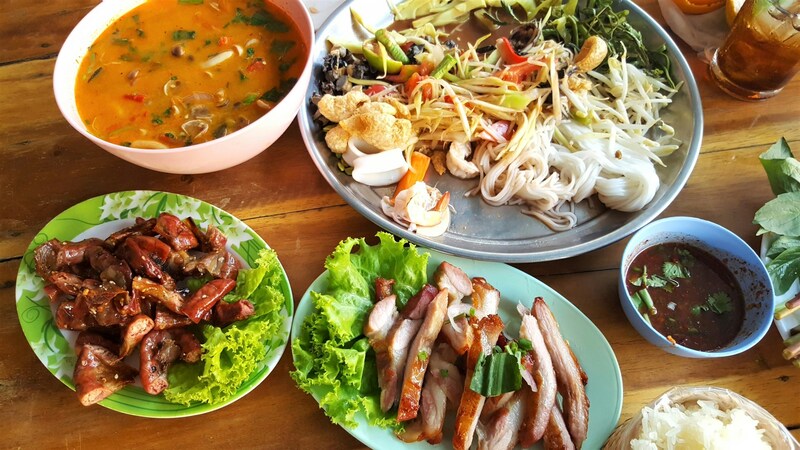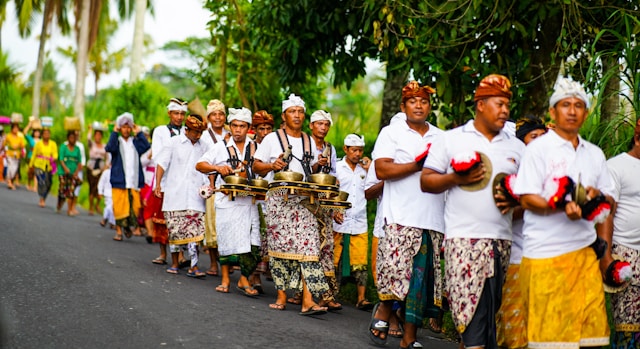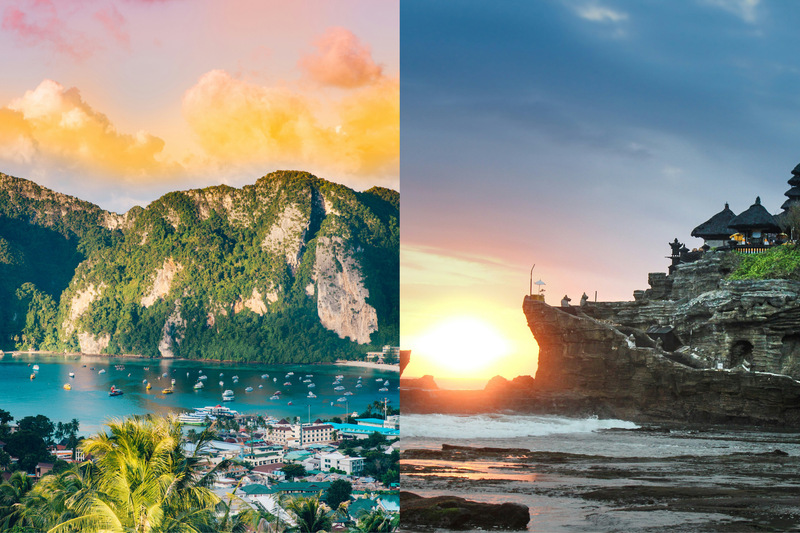A discourse that has been the buzz amongst many travel enthusiasts is: “Which is the better destination: Thailand or Bali?” Yet, to even attempt to answer that question, one must first grasp the fundamental distinctions and commonalities of each location.
For the many comparisons being made, some plead it is an unfair juxtaposition. When contrasting Thailand with Bali, it’s crucial to acknowledge a significant distinction: Thailand is a country on its own, encompassing a vast territory comprising islands, cities, mountains, and diverse landscapes. whereas Bali is a singular island province within the broader expanse of Indonesia.
So why even compare the two? Well, Bali as an island and province itself attracts the highest number of international tourists among all Indonesian provinces. Additionally, there’s often a misconception that Bali is an independent country rather than part of Indonesia. Despite this, the tourist demographic attracted to Bali shares similarities with those drawn to Thailand. It’s akin to a Spotify recommendation: “Enjoyed this destination? Then you might like that one too!” Thus, the comparison persists between the two.
Culture
Both destinations are renowned for their rich cultural heritage and vibrant local traditions. Thailand offers an intriguing exploration of Buddhist culture, boasting over 40,000 accessible temples and the presence of monks adorned in their distinctive orange robes within the streets, shaping the everyday life of the Thai. Thailand’s ancient temples, such as Wat Pho and Wat Arun in Bangkok, and historic sites like Ayutthaya and Sukhothai exhibit the country’s deep-rooted Buddhist heritage and architectural marvels.
Similarly, Bali’s spiritual landmarks, including the iconic Uluwatu Temple and the serene Tirta Empul Water Temple, provide glimpses into the island’s Hindu rituals and customs. In Indonesia, Bali stands out as the sole Hindu island, featuring a distinct form of Hinduism compared to its counterpart in India. Religion holds significance in the island’s daily affairs, evident in the handmade statues of Hindu deities adorning street corners and residences, accompanied by daily offerings crafted by the local populace.
Weather
Bali and Thailand boast fantastic weather year-round, typically maintaining temperatures above 20°C (70°F), even in the coldest winter months, and reaching the low 30s (95°F), although temperatures can occasionally soar higher. Due to their differing geographical locations, their monsoon seasons also vary. Bali’s monsoon season occurs from October to April, while Thailand is from July to October.
Both destinations have distinct dry and rainy seasons, albeit at different times of the year. When planning your trip, consider the timing carefully. In Thailand, the rainy season spans from May to October, making November to April the preferred travel period. Conversely, in Bali, the rainy season falls between November and March, making April to October the ideal time to visit.
Landscapes
Both Thailand and Bali boast a wealth of stunning landscapes and pristine beaches that draw travellers seeking sun, sand, and relaxation. Thailand’s tropical islands like Phuket, Koh Samui, and Phi Phi Islands offer picturesque beaches framed by crystal-clear waters and lush greenery, while Bali’s iconic coastline, including Kuta, Seminyak, and Uluwatu, captivates visitors with its dramatic cliffs, golden sands, and world-class surfing spots.
Cuisine
Both destinations excel in culinary offerings, showcasing a tantalising array of flavours and culinary delights that reflect their diverse cultural influences. Thai cuisine has widespread international popularity due to its broad appeal and globally suited flavours, earning it fame worldwide. Its renowned street food scene is characterised by spicy tom yum soup, fragrant pad Thai noodles, and aromatic green curry.
Meanwhile, Bali’s burgeoning food scene, featuring trendy beachfront cafes, organic farm-to-table eateries, and upscale dining establishments, celebrates the island’s culinary heritage with a modern twist with dishes like babi guling (suckling pig), crispy fried duck, and many varieties of sambal (chilli dips) and satay.
A general overview of what each destination offers may be appealing, but I sought deeper insights into the actual tourist experience. So I spoke to two friends with relevant experiences in the matter. Martin, a Frenchman who has spent months residing in both Thailand and Bali. And Alex from Russia, a frequent visitor of Thailand and a year-long resident of Bali.
Initially, for Alex, “in Bali, I was attracted by nature and the Russian community. Whereas in Thailand, I was drawn to the marijuana and convenient infrastructure.” He further added that to him, the Russian community in Thailand might be of the same size as in Bali, but not as friendly.
For Martin, there was no initial consideration for either place, but a random internship offer brought him to Thailand for 6 months. He said, “I enjoyed all aspects of life there, so I decided to explore Southeast Asia further and ended up with a job in Indonesia.”
Martin also had the experience of living in other parts of Indonesia as he previously explored Bekasi for a month, bouncing back to Jakarta often. According to him, the experience of coming straight from France to Bekasi and being the only bule was “quite different, and the biggest culture shock I’ve ever had. It was really hard to interact with locals as most of them didn’t speak English, although I could see and experience their kindness.” He found Bekasi to be an industrial city with little to no historical legacy to explore and considered moving to Jakarta before realising his shared sentiment towards both places. Despite that, he added “In any case, I could agree with the saying that Indonesians are the most welcoming. I can’t count how many times people came to speak with me, on the street or even on the train!”
Upon the question of which island in Thailand is comparable to Bali, both answered Phuket, the largest island in Thailand. Martin expanded that “geographically, both are islands of comparable size with similar landscapes such as the beaches, jungle and mountains.” He sees that both share an island ambience where people live at their own pace. Both have places with vibrant nightlife: Kuta or Seminyak and Patong, as well as a more historical centre: Ubud and Phuket Town.
As for the preferred destination, Martin chose Thailand “probably because it was my first experience in Asia, so I feel more connected to this country. More objectively, Thailand is way bigger and thus more diverse than Bali in terms of culture and landscape, making it more suitable for a long-term stay. But if I were to stay only a few months in Asia, Bali would probably be my choice as you’re close to everything there.”
Alex, on the other hand, prefers Bali “because of the people living there. I feel cosy and there is a lot of love in that place. In Bali, I like that people are very kind; it’s not exactly a custom, but I would like to answer that way”

Martin shared his impression of the local behaviour or culture from each respective place to be that “both have a rich culture visible in everyday life with warm and welcoming people. One difference I noticed is that Thai people tend to be more respectful or careful while Balinese are more direct and competitive. One may see Thais as introverts and Balinese as extroverted Asians.” Curious for details, I asked him to expand more on that last statement. He explained that it was not something he had a clear example of, but more of something he felt on a daily basis: “I’d say that Thai people tend to avoid interactions that may–even slightly–annoy the other. For instance, they would never come and talk to you on the street or train as they think you might not want to interact with them. This is not always a good thing, as I had way more interactions with Indonesians than Thais because of this, and the language barrier, I suppose.”
In terms of the financial aspect, Alex shared that, out of the two, he found Thailand to be the cheaper destination “considering that in Bali, you have to constantly pay for a visa.” Then, in the aspect of immigration and visa leniency, “Thailand is more lenient in terms of visas, but regarding immigration, I believe it’s the same.”
As Alex briefly mentioned, another factor to consider is the recent legalisation of marijuana in Thailand which has catalysed a significant surge in tourism for the island nation. The effects on Thailand’s tourism sector have been nearly immediate, with approximately 2 million tourists flocking to the country in the initial six months of 2022, as reported by Associated Press. Prior to this development, tourism already constituted a substantial industry in Thailand, valued at $52.63 billion. Though there are discussions underway to enact stricter legislation regarding marijuana use in Thailand, potentially curtailing cannabis tourism by the end of 2024.
Whether you opt for the streets of Thailand or the landscapes of Bali, both destinations offer unique experiences that cater to diverse preferences and interests. Ultimately, the choice between these two remarkable destinations boils down to personal preferences and individual inclinations. Regardless of your choice, embarking on a journey to either Thailand or Bali promises unforgettable adventures and cherished memories in the enchanting realm of Southeast Asia.




